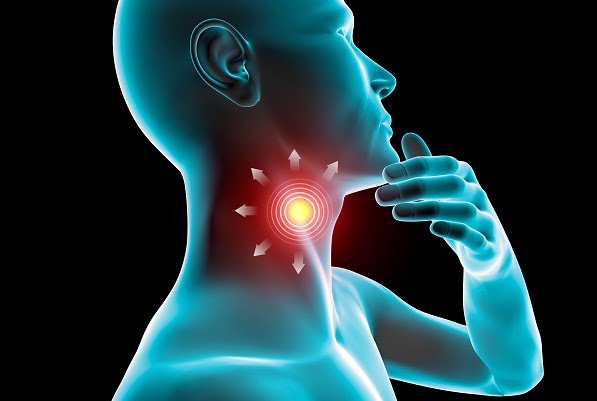Overview of Strep Throat
- Updated on: Jun 24, 2024
- 4 min Read
- Published on Oct 3, 2019


What is strep throat?
Strep throat is a type of bacterial infection which is caused by specific bacteria. This bacterial infection is contagious in nature and results in occurrence of inflammation and swelling of the throat. Strep throat is also known as streptococcal pharyngitis.
Strep throat is very commonly observed in children and adolescents. It is a highly contagious infection which is seen mostly in winter months.
Strep Throat Causes: What is the cause of strep throat? Is strep throat contagious?
Strep throat is a kind of bacterial infection which is caused by a specific type of bacteria known as streptococcus species, especially Streptococcus pyogenes.The bacteria is responsible for the cause of strep throat. This bacterium causes an inflammation to the pharyngeal tissue and tonsils and is generally found on the skin and in the throat.
Strep throat is contagious in nature and can easily spread from one person to another through direct contact, air, etc. When an infected person coughs or sneezes, he or she releases infected droplets into the air. When another person inhales this air, he or she also catches the infection.
Strep throat is commonly observed in young children but may also be seen in adults. Strep throat infection usually becomes better on its own in 2 to 5 days.
What are the symptoms of strep throat?
The main symptom of strep throat is a sore throat. Sore throat can also be the symptom of other diseases. Therefore, it becomes very important to notice other symptoms of strep throat carefully such as:
- Loss of appetite
- Constant stomachache
- Nausea and vomiting
- Rash
- Chills
- Trouble in swallowing
- Headache
- Presence of tiny red spots in the mouth
- Red and swollen tonsils
- Presence of white patches in the throat
The above strep throat symptoms usually develop within 5 days after coming in contact with the bacteria. The symptoms of strep throat occur differently in all age groups.
Strep throat in infants
Strep throat in infants is rarely seen. Babies may feel irritated and fussy. Also, they may feed less, and sometimes may suffer from mild fever and nasal discharge.
Strep throat in children
Strep throat is commonly seen in children under the age of 18 years. They generally suffer from sore throat and face difficulty in swallowing food. Abdominal pain is also observed frequently in the infected children.
Strep throat in older children and teenagers
Strep throat can be very uncomfortable for teenagers and older children. They can suffer from severe sore throat and high fever.
Strep throat in adults
Adults are rarely affected by strep throat and if they do suffer from it, the symptoms are very mild. But in some cases, the symptoms can become very severe and may result in other complications.
What are the complications of strep throat?
In usual cases, strep throat is not a dangerous or a life-threatening illness but it can result in severe complications if left untreated. Some common types of complications of strep throat are:
Acute rheumatic fever
Acute rheumatic fever is a serious complication as a result of strep throat in which the body’s antibodies mistakenly starts attacking its own organs such as skin, joints, and the heart instead of the infection. This action of the body damages the heart valves and muscles which can cause congestive heart failure.
Abscess formation
Abscess formation is a condition in which, pus or abscess develops around the tonsils or at the back of the throat. In such conditions, it is important to take antibiotics and frequently drain the pus.
Poststreptococcal glomerulonephritis
Poststreptococcal glomerulonephritis is an immune-mediated disease which is caused by certain strains of Group A Streptococcus. It is commonly observed in children between the ages of 2 to 12 years. This complication can result in kidney damage.
Streptococcal toxic syndrome
Streptococcal toxic shock syndrome is a rare life-threatening illness which is caused by toxins Streptococcus. It is accompanied by symptoms such as fever, low blood pressure, rash, etc with a possibility of multi-organ failure.
Scarlet fever
Scarlet fever is a disease in which people suffering from fever and sore throat, also develop red rash. It is commonly observed in young children.
Strep throat diagnosis: How is strep throat diagnosed?
Strep throat is generally accompanied by a sore throat and other symptoms. As soon as the child shows these symptoms, he or she should be immediately taken to the doctor for further review. There are three important tests which can easily detect strep throat and help in the diagnosis of strep throat. They are:
Rapid strep test (RADT)
RADT is performed in various places such as medical offices, emergency departments and hospitals for diagnosing strep throat.
In RADT, a throat swab is taken from the back of the infected throat. It is then checked for the presence of the streptococcus bacteria with the help of a RADT kit. The results are generally obtained in 10 minutes. This test gives approximately 70-90% accurate results.
A positive result confirms the diagnosis of strep throat infection. In case of a negative result, another test, known as throat culture is performed because, in many cases, the negative test does not mean that the condition is not strep throat.
Throat culture
Throat culture is a traditional test in which a swab is obtained from the infected throat and the growth of the bacteria is observed in the laboratory equipment called petri plate. The test takes approximately 24 to 48 hours for determining the presence or absence of the bacteria and diagnosing strep throat.
How is strep throat treated?
Strep throat usually takes around 7 to 10 days to fully cure naturally, without medicines. But it is preferable to consult the doctor in case the disease becomes very severe. Treatment of strep throat can be done in the following ways:
Medications for strep throat treatment
Doctors generally prescribe antibiotic medicines to treat strep throat. The effectiveness of the medicines depends upon person to person. In some cases, the symptoms may be controlled in a day or it might even take few days to control the infection.
Antibiotics are also very effective in controlling the complications which can be caused due to strep throat. There are various medicines which are usually prescribed by doctors for the treatment of strep throat. Some of them are:
- Acetaminophen
- Ibuprofen
- Aspirin
- Penicillin
- Cephalosporin
- Macrolides
Home remedies for treating strep throat
There are many home remedies which can be used for treating strep throat. For example:
Gargles
A pinch of salt is mixed with water and it used for gargles. This approach is not usually performed by young children as they might swallow it.
Throat sprays
Some people use throat sprays which contains topical pain relievers such as phenol and benzocaine. These sprays are very useful in curing sore throat, etc.












